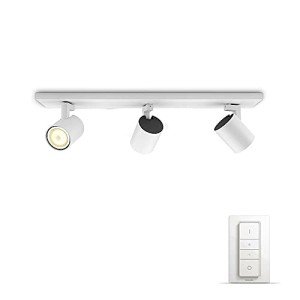Industrial Lamps in the UK: Illuminating Industries and Workspaces
In an age where efficient lighting services play an essential role in improving productivity and safety in different industrial settings, industrial lamps have emerged as essential tools for factories, warehouses, workshops, and more. The UK's market for industrial lighting is rapidly progressing, driven by developments in technology, a growing concentrate on energy efficiency, and strict safety regulations. This article checks out the various kinds of industrial lamps offered in the UK, their applications, and the considerations that ought to be made when choosing the appropriate lighting services for industrial environments.
Understanding Industrial Lamps
Industrial lamps are developed particularly for usage in a variety of industrial settings. Buy Outdoor Lamps UK offer the needed illumination while also thinking about the unique obstacles posed by such environments, consisting of dust, moisture, high ceilings, and variable temperature levels. Industrial lamps come in numerous types, including LED, fluorescent, and metal halide lighting, each with its own set of qualities and advantages.
Types of Industrial Lamps
LED Industrial Lamps:
- Description: LED (Light Emitting Diode) industrial lamps are energy-efficient, long-lasting, and offer outstanding lighting.
- Advantages:
- Energy efficiency (as much as 80% less energy usage)
- Long life expectancy (up to 50,000 hours)
- Low heat emission
- Instantaneous brightness with no flickering
- Applications: Factories, storage facilities, and construction sites.
Fluorescent Industrial Lamps:
- Description: These lamps discharge light through the excitation of gas, typically used in environments needing uniform illumination.
- Advantages:
- Good color rendering
- Economical
- Numerous sizes and shapes
- Applications: Workshops, garages, and assembly lines.
Metal Halide Industrial Lamps:
- Description: This kind of gas discharge lamp produces an intense, white light and is typically utilized in large areas.
- Advantages:
- High intensity and brightness
- Excellent for sports places, parking lots, and large industrial centers
- Applications: Warehouses, packing docks, and outdoor areas.
Comparison Table of Different Types of Industrial Lamps
| Lamp Type | Energy Efficiency | Lifespan | Brightness | Application Areas |
|---|---|---|---|---|
| LED Industrial Lamps | As much as 80% | Up to 50,000 hours | Really High | Factories, Construction Sites |
| Fluorescent | Moderate | 7,000 - 15,000 hours | Moderate to High | Workshops, Garages |
| Metal Halide | Moderate | 15,000-20,000 hours | High | Warehouses, Outdoor Areas |
Picking Industrial Lamps
When selecting industrial lamps, a number of elements need to be considered. These include:
- Type of Application: Different locations have varying lighting needs. For example, high-precision jobs might require brighter, more focused lighting compared to general office illumination.
- Energy Efficiency: With increasing energy expenses and ecological issues, selecting lamps with high energy effectiveness can result in significant cost savings with time.
- Life-span: Longer-lasting lamps decrease maintenance expenses and downtime, making them preferable in hectic industrial settings.
- Security Standards: Compliance with security regulations is vital. Industrial lamps ought to be developed to hold up against harsh conditions, consisting of wetness, dust, and effects.
- Expense: While upfront costs matter, the long-term cost savings attained by means of energy-efficient and long-lasting lamps must also be considered.
Advantages of Appropriate Industrial Lighting
- Boosted Safety: Proper illumination lowers the risk of accidents and injuries in industrial environments.
- Increased Productivity: Adequate lighting promotes much better exposure, helping in the performance of workers.
- Expense Savings: Energy-efficient lamps lead to lower electrical power bills and less frequent replacements.
- Enhanced Quality Control: Good lighting enables for better assessment procedures, eventually improving item quality.
Frequently Asked Questions (FAQs)
Q1. How do I figure out the right kind of industrial lamp for my center?A1. Evaluate the specific lighting needs and conditions of your facility. Consider factors such as the tasks being carried out, the size of the area, and any regulatory requirements.
Q2. Are LED lights worth the financial investment in an industrial setting?A2. Yes, LED lights use substantial long-lasting cost savings due to lower energy intake and longer life-spans, making them an affordable choice in the long run.
Q3. Can I install industrial lamps myself?A3. While some people might have the skills to install lamps, it is typically suggested to employ a certified electrician to ensure compliance with safety requirements and local policies.
Q4. What upkeep is needed for industrial lamps?A4. Routine inspections for damage, cleansing of light fixtures, and timely replacement of defective lamps are important to maintain ideal efficiency.
Q5. What are the most recent patterns in industrial lighting innovation?A5. Advances in smart lighting systems, consisting of IoT (Internet of Things) integration and sophisticated energy management solutions, are at the forefront of industrial lighting innovation.
The right industrial lamps are crucial to ensuring safety, efficiency, and cost efficiency in various industrial settings. The UK market uses a variety of lighting services, from LED lamps to fluorescent and metal halide choices, each appropriate for different applications. By comprehending the features and benefits of these lighting types and taking crucial factors to consider into account, services can make informed decisions that will brighten their work areas successfully while enhancing performance and conserving expenses. Investing in the right industrial lighting not only boosts total ambiance but likewise promotes a more secure and more efficient workplace.

